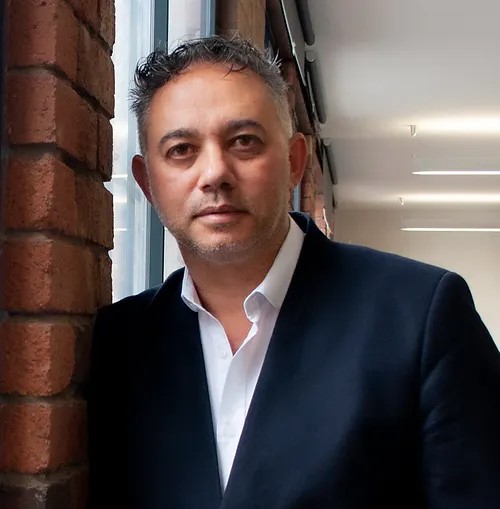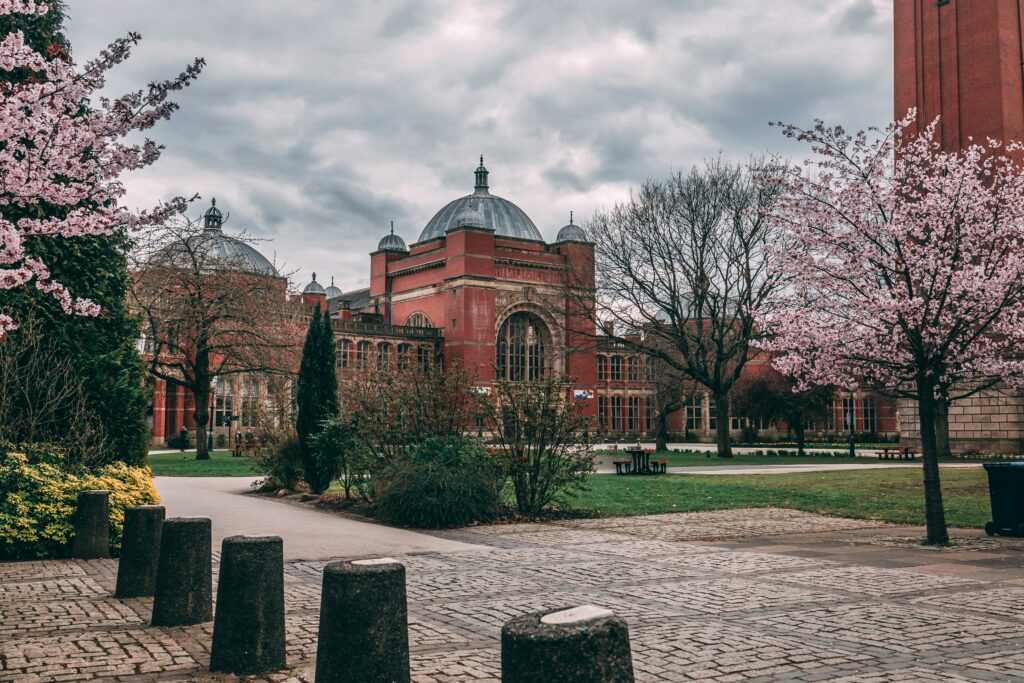- English
- DEUTSCH
- SPANISH
- FRENCH



Professor Kevin Singh is an architect whose career in has spanned over 25 years. He has extensive experience in both higher education institutions and in the industry, as the head of his own practice.
Kevin joined the Manchester School of Architecture as its Head in September 2020. The Manchester School of Architecture is distinctive as it is a joint school between Manchester Metropolitan University and the University of Manchester.
We sat down with Kevin to discuss the challenges and rewards that come with his role, how design has changed over recent years and his advice for future architects.
Technically, I am in a Head of Department role, similar to one you would find in many Universities. What is unique about the Manchester School of Architecture is that it sits across two institutions; the University of Manchester and Manchester Metropolitan University, making it a wide-ranging role that allows me to interact and collaborate with talented academics in both institutions.
Perrett Laver prepared me brilliantly for this, explaining the equivalences between the institutions, supporting me through the process right up until I found out I had been chosen for the job. It’s a real honour to have been given the responsibility to run such a prestigious and renowned institution.
I started in the role whilst the world was still in the midst of Covid. A view had swiftly been taken that all teaching would move online, which meant that I didn’t meet any of my students or team in person throughout my first year in the job.
I found this challenging for a number of reasons, not least because I am at my best when I’m in the room. My predecessor had also headed up the School for around a decade before leaving, so it was almost impossible to build up a comparable level of familiarity. All I can say is that it’s fantastic to be back in the room again.
Despite those initial obstacles, I’ve felt hugely appreciated by the University and feel that my opinions are truly valued. I couldn’t have asked for better support from the University and it’s great that they trust my instincts and allow me the room and opportunity to follow them.
This has been reflected in how I’ve helped to elevate and promote people in my team. I’ve been passionate about helping the School realise and reward some of its untapped potential from day one. It has been immensely satisfying to witness talented individuals progress in their career and have their voices heard, especially when they are not necessarily the loudest in the room.
Climate change is a global issue that affects everyone and we’re seeing a huge range of industries react and adapt to changing needs. An example of how this has been reflected in architectural practice is through a concerted effort to reuse materials where possible and work with what’s already there, which is what we term ‘adaptive reuse’.
At the Manchester School of Architecture, we’ve recently launched the MA Architecture and Adaptive Reuse programme, which is solely dedicated to reworking existing buildings. Whilst there are limitations to what you can do to change the aesthetic of a structure, it’s exciting to witness a new style of architecture being established.
A project where sustainable design has been embedded in the design process is the Battersea Power Station development. It was brilliant to see how the building’s structure has been reused, as well as how the surrounding area has been regenerated.
Sustainable practice is both inspiring and creative. I’m excited to see it continue to be embedded in design in the years to come.


Manchester School of Architecture is ranked amongst the best in the world and has a very diverse student body, with around 50 per cent of them being international students.
All of our students are incredibly able and dedicated, but we have recently added a Foundation course to the School, which acts as a ‘safety net’ and creates opportunity for students who may have been poorly advised at School, or who changed their mind about their career path.
It’s allowed us to introduce a whole cohort of individuals to architecture, who may not have got there otherwise.
I have also been working with and advising the estates team on a new library, always bearing facilities in mind that may benefit people who are working jobs alongside their studies and need a place to store their uniform, or have a shower.
We’ve also thought of people who may not be able to afford the technology needed to complete their studies to a standard they are capable of, doing our utmost to make the space as welcoming to a diverse community and as affordable as possible.
My first piece of advice is that you have to be passionate. It takes a lot of time and dedication to become an architect and it’s important to be committed to and patient with the process.
My first piece of advice is that you have to be passionate. It takes a lot of time and dedication to become an architect and it’s important to be committed to and patient with the process.
Lastly, I’d say it’s important not to make too many comparisons. I’ve noticed an upswing in the number of young architecture students are comparing themselves with others, which can be partially attributed to the rise of social media.

Perrett Laver specialises in executive search to identify outstanding leaders globally. We connect influential organisations with dynamic leaders who share common values and visions for the future.
Our deep understanding of each client’s values and culture ensures we find candidates from diverse sources who bring fresh perspectives and real impact.
We connect influential organisations with dynamic leaders who share common values and visions for the future.Our deep understanding of each client’s values and culture ensures we find candidates from diverse sources who bring fresh perspectives and real impact.